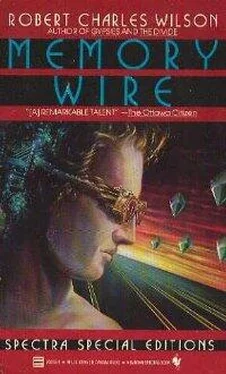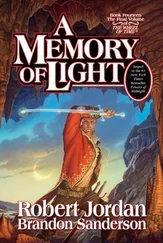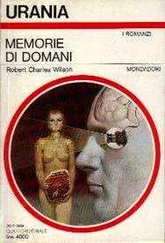Robert Wilson - Memory Wire
Здесь есть возможность читать онлайн «Robert Wilson - Memory Wire» весь текст электронной книги совершенно бесплатно (целиком полную версию без сокращений). В некоторых случаях можно слушать аудио, скачать через торрент в формате fb2 и присутствует краткое содержание. Год выпуска: 1987, ISBN: 1987, Издательство: Bantam Spectra, Жанр: Фантастика и фэнтези, на английском языке. Описание произведения, (предисловие) а так же отзывы посетителей доступны на портале библиотеки ЛибКат.
- Название:Memory Wire
- Автор:
- Издательство:Bantam Spectra
- Жанр:
- Год:1987
- ISBN:978-0-553-26853-9
- Рейтинг книги:4 / 5. Голосов: 1
-
Избранное:Добавить в избранное
- Отзывы:
-
Ваша оценка:
- 80
- 1
- 2
- 3
- 4
- 5
Memory Wire: краткое содержание, описание и аннотация
Предлагаем к чтению аннотацию, описание, краткое содержание или предисловие (зависит от того, что написал сам автор книги «Memory Wire»). Если вы не нашли необходимую информацию о книге — напишите в комментариях, мы постараемся отыскать её.
Memory Wire — читать онлайн бесплатно полную книгу (весь текст) целиком
Ниже представлен текст книги, разбитый по страницам. Система сохранения места последней прочитанной страницы, позволяет с удобством читать онлайн бесплатно книгу «Memory Wire», без необходимости каждый раз заново искать на чём Вы остановились. Поставьте закладку, и сможете в любой момент перейти на страницу, на которой закончили чтение.
Интервал:
Закладка:
“I need your help.”
“You’re hardly entitled to it. Everybody knows you went rogue back in Brazil. Fucking bad form, Steve.”
“This isn’t an official call.”
“We’re not friends.”
“We’re old friends,” Oberg said. “The hell we are.”
But it was true. If not friends, then at least something like it: comrades, colleagues. Tate had been a point man for Oberg’s platoon.
It was not something that drew them together; they had seen each other only a handful of times since the war. But they had parallel careers; and there was that unspoken bond, Oberg thought, the tug of old loyalties. He said, “I want whatever you have on the three Americans. I assume you processed the files from SUDAM. There must have been something.”
“That has nothing to do with me.”
“You have clearances.”
“I’m not your dog. I don’t fetch when you say fetch.” He looked pained. “This is not your business anymore.”
“As a favor,” Oberg said.
“As far as I know,” Tate said, “there’s nothing substantive. A couple of Floaters, no extant ID except what they bought. You know all this.”
“There’s the third man.”
“Keller. Well, we have the name. But this all went into limbo when you turned up AWOL. Are you listening? Steve: nobody cares.”
“Check it out for me,” Oberg said. “Please.”
“Give me a number where you are. I’ll call you back.”
“I’ll call you,” Oberg said, and cleared the monitor.
For a couple of days he explored the neighborhood.
It was a seedy area south of the factory district, close to the urban mainland. Most of the people here worked mainland jobs during the day. At night the boardwalks lit up with paper lanterns; the bars and dance shacks opened for business. Commerce came the opposite way after dark —venturesome mainlanders shopping for the illicit pleasures of the Floats. These were more legendary than real, Oberg understood. But there were certain things for sale.
Drugs, for instance. Well, drugs were everywhere. It was a truism that the economy could not function—or at least compete—without the vast array of stimulants, IQ enhancers, and complex neuropeptides for sale on the street or by prescription. Oberg had done time with the DEA and understood that it was a traffic no one really cared to interdict. Most of the field agents he knew were either neurochemically enhanced or skimming money from the trade. Or both. It was called free enterprise.
But the Floats made dealing a little looser. No government functionaries to take a percentage, although he understood the Filipino and East Indian mobs would sometimes muscle in. Generally, though, it was a loose friends-of-friends distribution network… and that worked in his favor.
For three nights he frequented a bar called Neptune’s, which catered almost exclusively to mainlanders. He watched the canal traffic, the waitresses, the tidal flow of alcohol over the bar. In particular he watched a lanky, pale teenager who occupied a rear booth—same booth all three nights— and who would periodically step out with one or two customers, through a back door onto a catwalk overlooking a waste canal. The boy was not a hooker; there were others, more sophisticated, handling that trade. But he fit the mainlander’s image of a drug pusher, and Oberg guessed that was an advantage here; it was like a sign, an advertisement. The teenager kept his hands in his oversized jacket, and when he brought them out, Oberg imagined, they would be holding pills, powders, blotters.
His fourth night in the Floats he approached the boy.
“I would like to buy drugs,” he said softly.
The teenager looked at him, amused. “You would like a hat ?”
Oberg showed him the vial he had taken from Teresa’s studio. He shook out the resinous black pill into the palm of his hand and held it so the boy could see it.
The boy laughed and looked away. “Shit,” he said.
“I’m serious,” Oberg said.
“I bet you are.” The teenager tapped his hand nervously against the tabletop.
Probably he was doing some CNS stimulant himself, Oberg thought, pumping chemical energy out of his neurons. Crash every morning, up every night. It was pathetic, and he resented the boy’s condescension. “I can pay,” Oberg said.
The boy took a second look. “You prepared to buy in quantity? I don’t sell candy.”
“Whatever you want.”
“Well.”
The boy led him outside.
The walkway was narrow and dark. Presumably, it was useful for dumping trash. It overlooked a waste canal, dark water drawn down open conduits to the sea. There was a single sodium-vapor lamp overhead and nothing beyond the canal but the blank stucco wall of an empty warehouse. The sound of music trickled out from the bar through this single door, closed now. The sound was anemic and far.-seeming.
The boy dug into the deep recesses of his jacket and brought out a sweaty handful of pills. They glistened in the harsh light. They were small and black. “This is all I have,” the boy was saying, bored with the transaction already, “but you come back Tuesday, I might—hey!”
Oberg swept his fist out and knocked the boy’s hand away. The pills flew up in an arc, twinkled a moment, dropped inaudibly into the canal.
The boy stared, a little awed. “Son of a bitch!” No one had ever done this to him, Oberg thought. Oberg could have been anyone, a mob enforcer, a new competitor. But the boy had only dealt with mainlanders. He was surprised and confused.
Oberg waited.
The boy’s eyes narrowed. “You can fucking throw them away if you want to,” he said finally, “but you pay for ’em either way. So pony up, asshole.” He took a knife from under his belt.
Oberg had anticipated it. He leaned inside the boy’s reach, bent the arm, extracted the knife. He held it against the boy’s throat.
He felt a pleasure in this that he had not felt for years.
He understood it was something he enjoyed, the rush of it, something he had missed all this time. An old and profound pleasure. But it was not a thought worth dwelling on.
Loose cannon, he thought giddily.
The boy was wide-eyed and pale.
“Tell me where you got them,” Oberg said.
The boy said, faintly, “Fuck you!”
Oberg let the blade draw out a line of blood. The blood was bright and oily in the stark light. He felt the boy twisting against his restraint. “Tell me,” he said.
It took time, but in the end he extracted four names and four approximate canal addresses. It would be useful, an approach to the woman, especially if Tate failed to produce any useful information. The boy relaxed, sensing that Oberg had what he wanted: the ordeal was over.
And it was. But not the way the boy expected. Oberg drew the knife deeply across the boy’s throat and in a single motion levered the body over the railing and down into the waste canal. There was a momentary thrashing, a choking sound, silence immediately after.
It felt good. It was deeply gratifying.
He used a handkerchief to clean the blade of the knife, and threw the handkerchief after the body.
The knife he took home.
The past is dead and gone, he thought. That was the way it should be.
He had trouble sleeping sometimes. Tonight, for instance. In part it was the adrenaline that had rivered through him at the death of the boy. In part, a more obscure stimulation.
In his worst dreams he was back in Brazil, back in the war, running what his orders called “punitive raids” on farms and villages where guerillas had been harbored. In the dreams he killed people but they would not stay safely dead: they rose and pointed accusing fingers at him; they protested their innocence. He killed them once, twice, three times. They rose up sullenly and said his name.
Читать дальшеИнтервал:
Закладка:
Похожие книги на «Memory Wire»
Представляем Вашему вниманию похожие книги на «Memory Wire» списком для выбора. Мы отобрали схожую по названию и смыслу литературу в надежде предоставить читателям больше вариантов отыскать новые, интересные, ещё непрочитанные произведения.
Обсуждение, отзывы о книге «Memory Wire» и просто собственные мнения читателей. Оставьте ваши комментарии, напишите, что Вы думаете о произведении, его смысле или главных героях. Укажите что конкретно понравилось, а что нет, и почему Вы так считаете.












